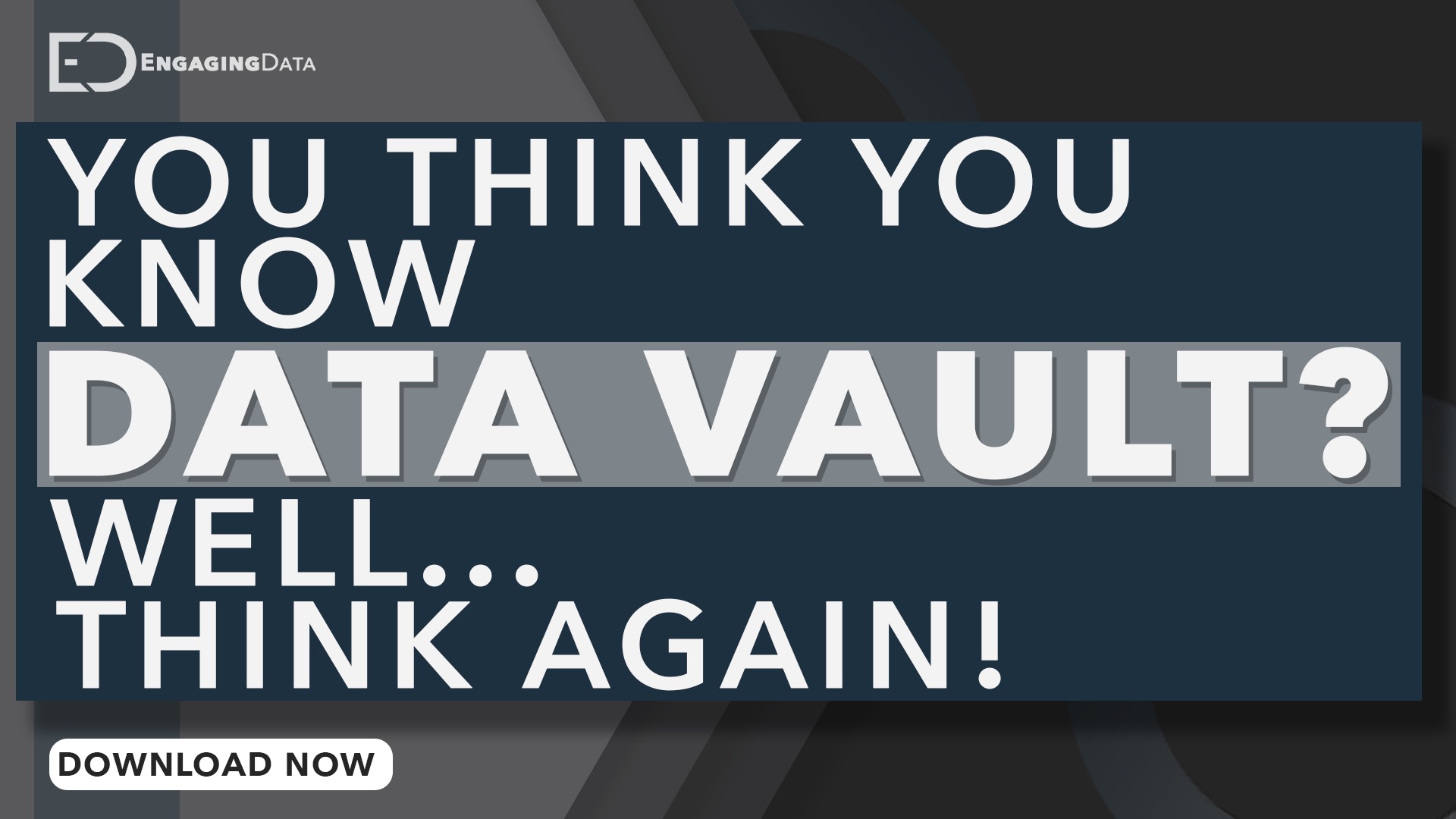The Misconceptions about Data Vault
Data Vault methodology is a game-changer in the realm of Data Warehousing. Its agile and scalable design offers businesses unparalleled flexibility in managing and analysing data while ensuring its integrity remains intact.
Common Misconceptions about Data Vault
Myth #1: Data Vault is Complex and Difficult to Implement
Despite the robust capabilities, Data Vault simplifies data modelling through standardised templates and methodologies.
This approach streamlines the implementation process, making it accessible to teams with varying levels of expertise. The misconception often arises from the perception of complexity due to its comprehensive nature. However, with proper guidance and training, teams can navigate through the intricacies effectively.
Consider a retail company implementing Data Vault to manage its sales data. With Data Vault, the company can utilise a standardised template for customer information (hub), transaction (link) and product details (satellite).
By following these predefined structures, the implementation process becomes more straightforward, enabling the team to focus on integration and analysing the data rather than grappling with complex modelling concepts.
Myth #2: Data Vault is Only Suitable for Large Enterprises
Contrary to popular belief, Data Vault’s adaptability makes it suitable for businesses of all sizes.
Its incremental development model allows startups and multinational corporations alike to harness its benefits without overwhelming infrastructure investments. Whilst larger enterprises may have more extensive data sets, Data Vault’s scalability ensures that organisations of any size can effectively manage and analyse their data.
Imagine a tech startup looking to implement a data warehousing solution to support is growing customer base. Despite its limited resources and relatively small dataset compared to large enterprises, Data Vault offers the flexibility and scalability needed to accommodate future growth.
By starting with a lean implementation and gradually expanding as the business scales, the startup can leverage Data Vault to manage its data effectively without overcommitting resources upfront.
Myth #3: Data Vault Requires Extensive Training and Expertise
While training is essential for mastery, Data Vault’s simplicity minimises the learning curve. With the right guidance and resources, teams can quickly grasp its concepts and begin implementing it effectively.
This misconception stems from the misconception that Data Vault requires specialised expertise. However, with the availability of online resources, training programmes, and a fool-proof software package, organisations can empower their teams to become proficient in Data Vault implementation.
Consider a healthcare organisation transitioning to Data Vault for its data management needs. To facilitate this transaction, the organisation invests in comprehensive training programmes tailored to different roles within the company, including data analysts, developers, and managers.
Through hands-on workshops, online courses, and access to documentation and forums, employees gain the knowledge and skills necessary to implement Data Vault effectively. Asa. Result, the organisation can seamlessly adopt Data Vault without the need for extensive expertise or external consultants (but some help may help you out further)
In conclusion, debunking misconceptions about Data Vault is essential for organisations seeking to harness its full potential. By understanding its simplicity, scalability, and the importance of proper training, businesses can unlock new opportunities for data-driven decision-making and innovation.
You Think You Know Data Vault? Well… Think Again!
Are you familiar with Data Vault? Do you harbour doubts or reservations about its efficacy?
It will challenge your assumptions, dispel misconceptions, and offer a fresh perspective on its powerful data modelling approach!
FAQs (Frequently Asked Questions)
What is Data Vault?
Data Vault is a methodology for designing, modelling, and implementing enterprise data warehouses. It emphasises flexibility, scalability, and agility, making it suitable for evolving business needs.
How does Data Vault compare to traditional data warehousing?
Data Vault offers advantages such as improved scalability, agility, and data integrity compared to traditional data warehousing methods. Its standardised approach simplifies data modelling and facilitates easier adaption to changing business requirements.
How can I learn more about Data Vault?
To learn more about Data Vault methodology, consider downloading our eBook, You Think You Know Data Vault? Well… Think Again, which provides in-depth insights, practical guidance, and real-world examples for effective implementation and management.

